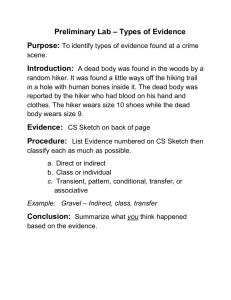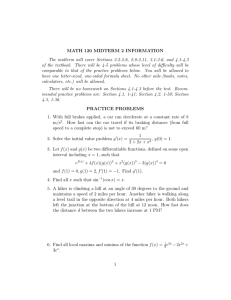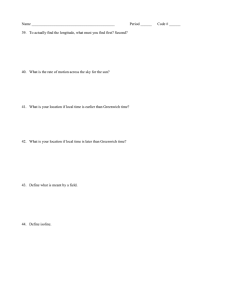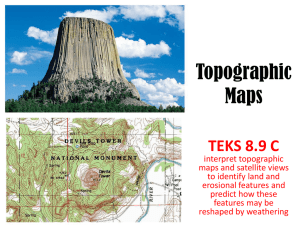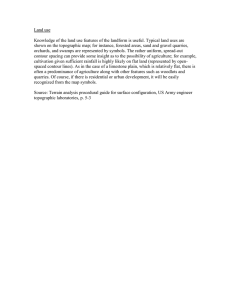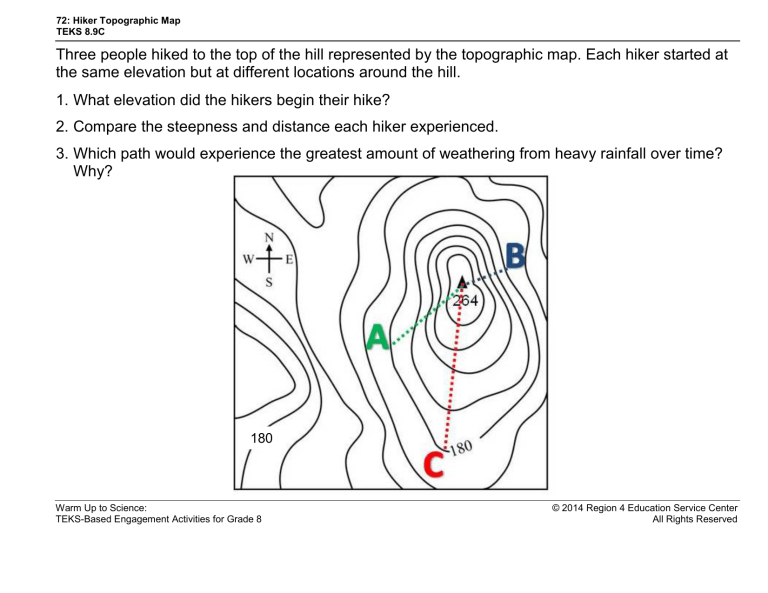
72: Hiker Topographic Map
TEKS 8.9C
Three people hiked to the top of the hill represented by the topographic map. Each hiker started at
the same elevation but at different locations around the hill.
1. What elevation did the hikers begin their hike?
2. Compare the steepness and distance each hiker experienced.
3. Which path would experience the greatest amount of weathering from heavy rainfall over time?
Why?
180
Warm Up to Science:
TEKS-Based Engagement Activities for Grade 8
© 2014 Region 4 Education Service Center
All Rights Reserved
72: Hiker Topographic Map
TEKS 8.9C
Reporting Category 3: Earth and Space
TEKS
8.9C: The student is expected to interpret topographic maps and satellite views to identify land and
erosional features and predict how these features may be reshaped by weathering.
Answer
1. Students started at an elevation of 180 feet.
2. Hiker B hiked the shortest distance and a very steep slope because the contour lines are very
close together. Hiker A started with a gradual slope and ended with a steep slope but traveled
father than hiker B. Hiker C had the longest hike but the most gradual slope because the contour
lines were the farthest apart.
3. The path hiker B took would experience the greatest amount of weathering from heavy rainfall
because it has the steepest slope. The water flowing down the hill will have the greatest amount
of kinetic energy.
Teacher Notes
The contour lines on a topographic map provide a lot of information about the land. On this map,
the contour interval is 20 feet. If the contour lines are closer together, the slope of the land is steep.
If the contour lines are farther apart, the slope of the land is gradual. Weathering due to water will
generally be greater where the land is the steepest, depending on the type of rock or surface.
Warm Up to Science:
TEKS-Based Engagement Activities for Grade 8
© 2014 Region 4 Education Service Center
All Rights Reserved

